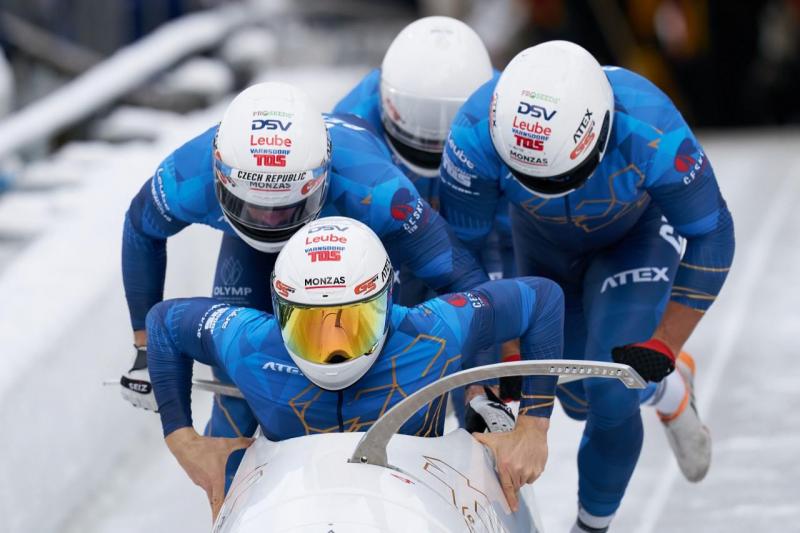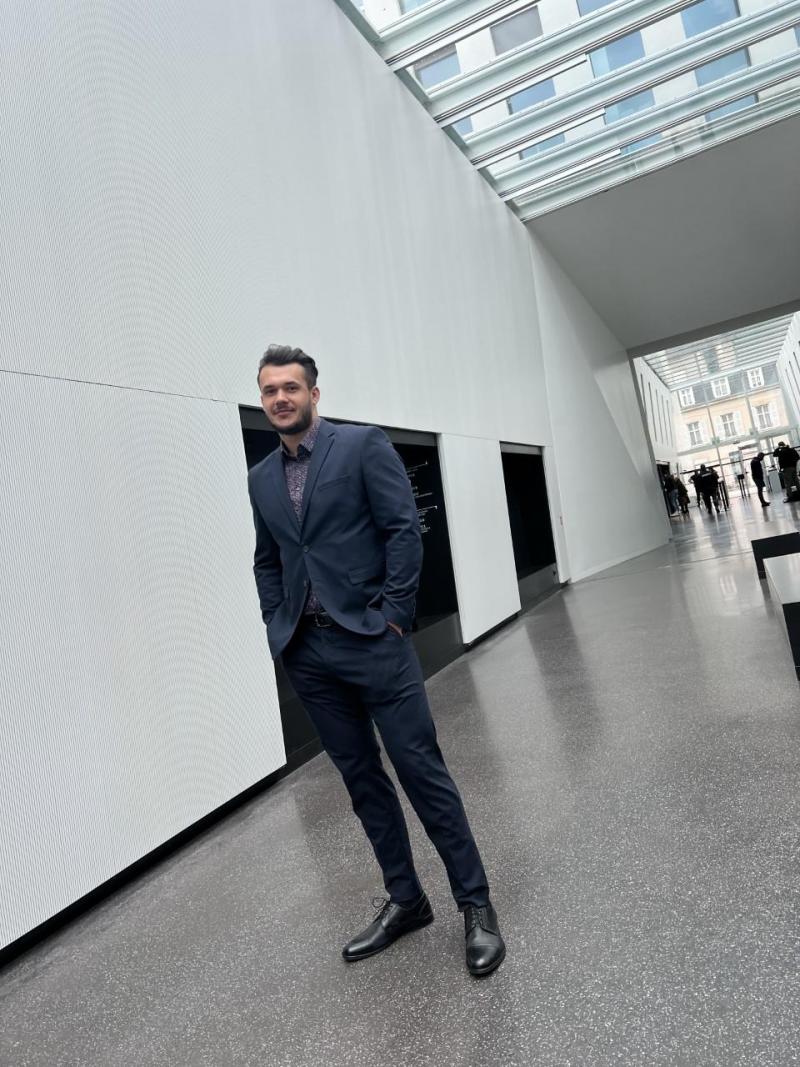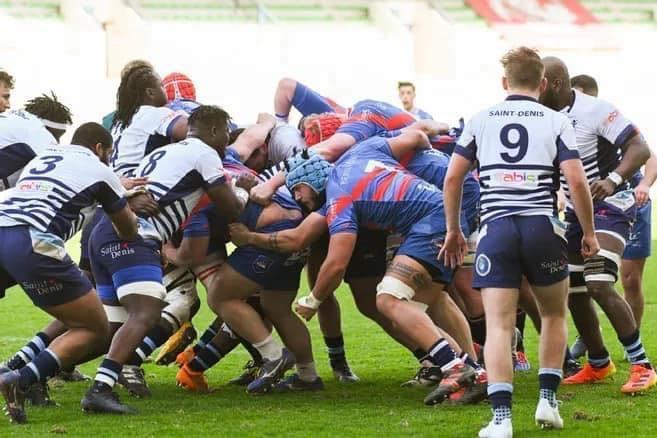Sport
I still need a driving engine in my life, the former rugby player who today competes in bobsleigh says

From rugby to bobsleigh. This is how David Bureš's rather unconventional sports career could be described in a nutshell, which included, for example, swimming, takewon-do or badminton. He even played rugby for six years in France, and when his contract expired, at the instigation of his fitness coach, he signed up to recruit new bobsledders. He managed to travel the entire winter season last year and is preparing for the Winter Olympics in 2026 with the team of the first pilot Dominik Dvořák. While doing all this, he is managing the study of Strategic Business Development at the Faculty of Business and Management at BUT and plans that once he hangs up his sports career, he will devote himself to management.
One basic rule has always ruled in David Bureš's family: "We will support you in everything you come up with, but you have to graduate." And he followed it. That is why he has been combining a demanding sports career with studies since he was sixteen. When he went to play rugby in France seven years ago, he was still studying remotely at a gymnasium in the Czech Republic. After graduation, he automatically headed to university.
Perhaps surprisingly, he did not choose, for example, coaching, as is often the case with active athletes. He chose the business faculty. "The role of coach does not appeal to me at all. I tried rugby a few times and knew it wasn't for me. Even though I considered a sports school for a while, I'm glad that I chose BUT in the end," David Bureš, who already has a bachelor's degree in Business Economics at BUT, says. "I've always been good at math. In addition, I have great ambitions not only in sports, but also in my career," he adds, adding that the pressure exerted on, for example, managers would suit him. "I just need to have some goal, some driving engine. Something that always drives me forward and gets me out of bed in the morning. I hope that one day I will find a job that fulfils this. I am grateful to the management of the faculty for allowing me to combine top sport with my studies," the engineering student, who now has an individual study plan, says.
David Bureš also has other skills that will undoubtedly come in handy at work one day. Independence and flexibility. Life in France taught him independence, where he went not only to play rugby, but also for study experience. "From the age of sixteen I lived without a family, far from home, from friends," he says. That's also why, when the next season ended, he considered what to do next. And he decided on a rather radical change. "The fitness coach who trained me in the Czech national rugby team, Jan Kobián, always told me that when I stopped enjoying rugby, I should try bobsled. He himself has been to the Olympics five times with bobsled," David Bureš, who eventually took him at his word, describes. "I thought about it. And by chance it turned out that our current pilot Dominik Dvořák lost his entire crew after the last Olympics. Therefore, he was looking for new guys and was recruiting. I signed up and immediately left with his crew for the entire winter season," Bureš explains, adding that he also has good physical predispositions to bobsledding. "I am about one hundred and ninety centimetres and over one hundred kilograms, so I am suitable for this sport. Thanks to rugby, I have speed, dynamism and strength. In bobsled, you need to be big and heavy, but also fast," he explains.
EIGHTY MINUTES VERSUS FIVE SECONDS
Although he has fallen in love with this rather unconventional sport and will try to qualify with his team for the 2026 Winter Olympics, he admits that there are many things he is still getting used to. "It is different. In training, there is no emphasis on overall fitness. After all, rugby is played for eighty minutes, so you have to be physically fit to last the whole match. This is mainly about the first few seconds," he describes. It is the ability to give everything at the beginning that David Bureš struggles with the most. "I still haven't been able to switch completely in my head to be fired up for the first few seconds and give it everything," he confirms, adding: "It's a big difference to rugby, where I could often warm up for the first ten to fifteen minutes because I had still plenty of time to show something."
According to him, the great advantage of bobsled is that it is a sport that can be started even at a later age. Most bobsledders usually come from another sport. "I'm twenty-three now. Bobsled is not a sport that needs to be done from childhood," he says. According to Bureš, if someone is attracted to this non-traditional sport, he has a chance to join the team. They will be recruiting again at the beginning of April.

He himself does not regret his decision and would do it again. But he admits that there was only one thing that surprised him a little. "I was used to being able to rest when the training was over. No one told me that I am also a mechanic here. So when the training is over, we have to prepare the bobsleigh for further use. Maybe polish the mandrels. And just turning the bobsleigh is very challenging because it is not light at all. The quadruple bobsleigh weighs over 200 kilograms and the double bobsleigh a few dozen kilos less. Although I wouldn't change my decision to get into this sport, knowing that we don't have any mechanics and have to take care of the maintenance ourselves doesn't surprise me that much," David Bureš adds at the end with a smile.
(zeh)
She took up sport shooting when she was almost an adult. Today, as a student at the Faculty of Business and Management at BUT, she is a European champion.
From cabaret to concrete. Three students from Faculty of Business and Management are behind designer furniture and accessories
ARGO underwater: Prototype of student submarine on display at IDET Fair
I forgot twenty years of my life, but I was given a second chance – the graduate of FBM of BUT says after
Majáles returns after 2 years, royal candidates from BUT are ready to fight